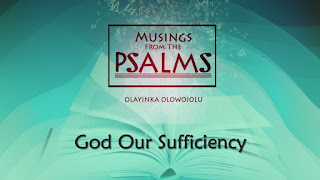"…Even
if my father and mother abandon me, the Lord cares for me.”
Psalm
27:10 HCSB
An
earthquake almost flattened Armenia (a former Soviet Republic) in 1988, killing
over 30,000 people in less than four minutes. On the morning of the day the
earthquake occurred, Samuel had sent his young son, Armand, to school with a
simple promise: "No matter what, I'll always be there for you!"
Samuel
and his wife, Danielle themselves were safe after the earthquake but they
couldn’t get any information about their son Armand. They had only heard on the
radio that there were many casualties. So Samuel headed to Armand’s school
only to find a pile of debris.
The
ruin and devastation was enormous and the situation looked very hopeless. Other
parents stood around crying but Samuel kept remembering his commitment to his
son. He located the place where Armand’s classroom used to be and began digging
through the rubble.
One
of the other parents asked, “What are you doing?” and Samuel replied, “Digging
for my son”. The man along with other parents as well as the Fire Chief and
even the Police tried to stop him from digging the rubble making statements
such as:
"It's
too late!"
"They're
dead!"
"You
can't help!"
"Come
on, face reality, there's nothing you can do!"
"You're
just going to make things worse!"
"Fires
are breaking out, explosions are happening everywhere. You're in danger. We'll
take care of it. Go home."
"You're
angry, distraught and it's over. You're endangering others. Go home. We'll
handle it!"
To
each person, Samuel responded with one line: "Are you going to help me
now?" And he just continued digging for his son, beam after beam, and
stone after stone.
Other
parents brought flowers and pictures of their children on the ruins of the
school but Samuel kept digging. He dug all through the night and into the next
day. Eight hours, 12 hours, 24 hours, 36 hours, he kept digging.
Then
after 38 hours, he pushed a beam out of the way and heard a faint voice. Then
he heard a muffled voice, “Papa?” Samuel dug more furiously and finally he
could see his son, Armand. “Come on out, son!” Samuel said. “No,” Armand said. “Let
the other kids come out first because I know you’ll get me”. 13 other children
appeared before Armand finally emerged from the ruins. Samuel held him in his
arms and Armand said, “I told the other kids not to worry because you told me
that you’d always be there for me!”
Being
a father myself, this story is so touching. It is an illustration of the depth
of a parent’s love. The story also demonstrates the power of
commitment/faithfulness-14 children were rescued from the ruins of a collapsed
classroom because one father was faithful. Despite the visible devastation, he
did not allow anything or anyone stop him from following through with his
promise to his son.
Even
this most exemplary display of human love and faithfulness depicted in the
story pales when compared with the commitment and faithfulness of our God as David
expressed in Psalm 27:10-even if everyone else abandons us, God will not. It is
a reality God confirms speaking through the prophet Isaiah:
“Can a woman forget her nursing child,
or lack compassion for the child of her womb?
Even if these forget,
yet I will not forget you…”
Isaiah 49:15 HCSB
As
human beings we live in a world filled with uncertainties. Global and national
economic recessions. People break promises. Leaders in government do not keep to
their words. Friends and even family members sometimes fail us. Sadly, some
marriages fail because somehow people change and circumstances don’t just
remain the same.
However,
we have a God who is faithful.
“Lord, Your faithful love reaches to heaven, Your
faithfulness to the clouds.”
Psalm 36:5 HCSB
“Because of the Lord’s faithful love we do not perish, for
His mercies never end. They are new every morning; great is Your faithfulness!”
Lamentations 3: 22, 23 HCSB
“Every generous act and every perfect gift is from above,
coming down from the Father of lights; with Him there is no variation or shadow
cast by turning.”
James 1:17 HCSB
“If we are faithless, He remains faithful, for He cannot
deny Himself”
2nd Timothy 2:13 HCSB
This week dear one, I ask you to muse with me on this Psalm as we meditate
on God’s faithfulness. Our God is steadfast in His affection and constant in
His commitment. He is unchanging, He is unchangeable in fact. This was the
ground of David’s confidence. This revelation of God’s character should inspire
us to trust Him in every situation and draw our hearts in reverential adoration.
Our God remains faithful.
My song for the week is "Faithful God" by Gateway Worship.




